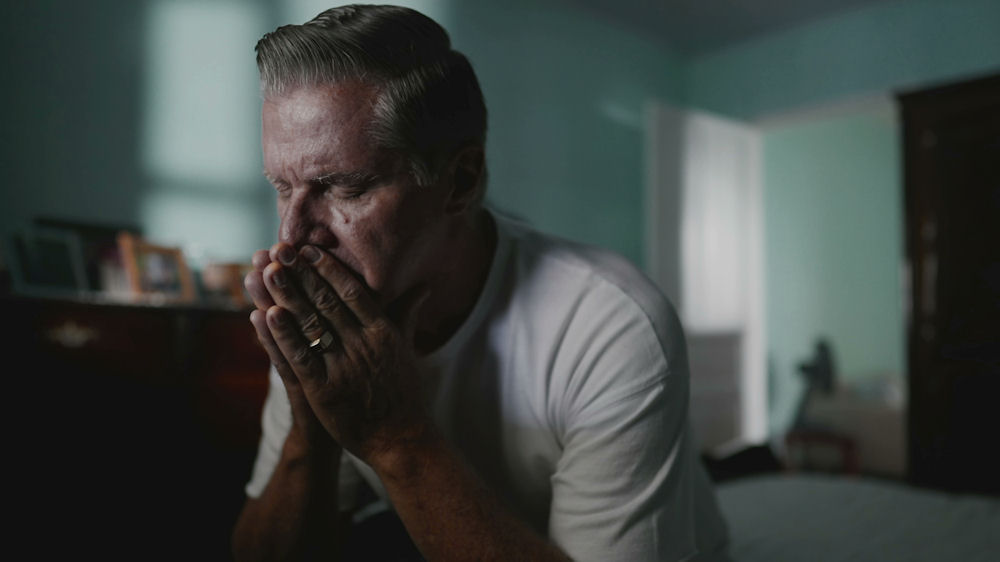In today’s society, mental health has become an increasingly important topic of discussion. As we age, it is natural to wonder about the impact of time on our mental well-being. Does mental illness get worse with age? We will explore the influence of age and gender on mental health, dive into men’s and women’s mental health issues, discuss factors that could affect mental health over time, and provide tips on improving mental health as we age.
Ambrosia addiction treatment and mental health programs can help you or a loved one struggling with a behavioral health condition. Learn how to get help today.
The Impact of Age and Gender on Mental Health
Age and gender play substantial roles in determining an individual’s mental health. While mental health issues can arise at any age, studies show that older adults may be more susceptible to certain conditions.
The aging process brings about significant life changes, such as retirement, loss of loved ones, or physical health issues, which can contribute to mental health challenges. Moreover, women tend to exhibit higher rates of depression and anxiety, while men often struggle with substance abuse and anger-related disorders.
It is important to note that societal expectations and norms can also influence how age and gender impact mental health. For example, older adults may face stigma or discrimination related to seeking mental health treatment, which can prevent them from getting the support they need. Additionally, gender stereotypes can shape the way individuals express their emotions and cope with stress, potentially affecting their mental well-being.
Our South Florida Behavioral Health Center provides compassionate treatment for anyone looking to overcome mental illness. Don’t hesitate to seek the help you deserve.
Men’s Mental Health
Mental health concerns among men have long been overlooked due to societal expectations surrounding masculinity. Men are often discouraged from expressing their emotions or seeking help, which can exacerbate mental health issues accumulated stress and unaddressed emotional challenges may become more pronounced as they agreed. However, by fostering a safe environment and encouraging open dialogue, we can help men overcome the stigma and receive the support they need.
It is important to recognize that mental health struggles do not discriminate based on gender. Men, just like women, can experience a wide range of mental health conditions such as depression, anxiety, and PTSD. However, due to the societal pressure to appear strong and stoic, many men suffer in silence. This can lead to a sense of isolation and a reluctance to seek help, perpetuating a cycle of poor mental health.
One way our rehab center for mental health in Florida breaks this cycle is by promoting mental health education and awareness specifically tailored to men. By providing resources that address the unique challenges men face in seeking help, we can empower them to prioritize their mental well-being. Additionally, creating spaces where men feel comfortable sharing their feelings without judgment makes a significant impact on their mental health journey.
Women’s Mental Health
Women, on the other hand, face unique mental health challenges throughout their lives. Hormonal changes during puberty, pregnancy, and menopause can impact mood and increase vulnerability to certain conditions such as depression and anxiety disorders. However, it is essential to remember that mental health is a complex interplay of biological, psychological, and social factors, and women have shown tremendous resilience in facing these challenges.
Moreover, societal expectations and gender roles can also play a significant role in women’s mental well-being. The pressure to balance career, family, and personal life can lead to stress and burnout, affecting mental health. Additionally, women may face discrimination, violence, or unequal access to resources, all of which can contribute to mental health issues.
Women need to prioritize self-care and seek support when needed. Building a strong support network, practicing mindfulness and relaxation techniques, and seeking therapy at Ambrosia Behavioral Health are all valuable tools for maintaining good mental health. By addressing these challenges and seeking help when necessary, women can continue to navigate the complexities of mental health with strength and resilience.
Important Things To Know About Mental Health
Before delving deeper into the impact of age on mental health, it is crucial to establish a foundation of knowledge about mental health itself. Mental illnesses are not a weakness, but rather medical conditions that require understanding and support. Seeking help early on and adhering to treatment plans can significantly improve an individual’s quality of life. Furthermore, building a strong support system, practicing self-care, and maintaining positive relationships are crucial in promoting mental well-being.
It’s important to recognize that mental health is a spectrum, with varying degrees of well-being and challenges. Just as physical health exists on a continuum, mental health does. This means that everyone experiences fluctuations in their mental well-being throughout their lives, influenced by factors such as genetics, environment, and life events. Understanding this spectrum can help reduce stigma and encourage open conversations about mental health.
Moreover, mental health is interconnected with physical health. The mind and body are intricately linked, and issues in one area can impact the other. For example, chronic stress or anxiety can manifest as physical symptoms like headaches or digestive problems. Our holistic therapy program addresses both mental and physical well-being which is essential for overall wellness. This integrated perspective underscores the importance of treating mental health with the same level of attention and care as physical health.
Factors That Could Affect My Mental Health Over Time
As we age, various factors can potentially influence our mental well-being. Physical health issues, such as chronic pain or cognitive decline, can complicate mental health conditions or lead to the development of new ones. Moreover, life events such as the loss of a spouse or close friends, financial concerns, or isolation can significantly impact mental health. Recognizing these factors can help individuals, as well as their loved ones and healthcare providers, develop appropriate strategies for prevention and intervention.
It is essential to consider the impact of lifestyle choices on mental health as well. Factors like diet, exercise, and sleep patterns play a crucial role in maintaining cognitive function and emotional well-being. A balanced diet rich in nutrients can support brain health, while regular physical activity has been shown to reduce symptoms of anxiety and depression. Adequate sleep is also vital, as sleep deprivation can negatively affect mood, concentration, and overall mental health.
Furthermore, social connections and engagement in meaningful activities are vital for mental health maintenance. Peer support for mental health and addiction in Florida provides a sense of belonging and reduces feelings of loneliness and isolation. Participating in hobbies, volunteering, or pursuing lifelong learning opportunities can also contribute to a sense of purpose and fulfillment, enhancing overall mental well-being.
Understanding the Gender Gap in Mental Health

The gender gap in mental health presents itself in various ways. While women are more likely to seek help for mental health issues, men often face obstacles in accessing support due to societal expectations. Additionally, symptoms of mental illnesses may manifest differently in men and women, making diagnosis and treatment more challenging.
By addressing these disparities and raising awareness, we can strive for a more inclusive and equitable mental healthcare system. Learn more about the benefits of our gender-specific treatment.
Mental Health FAQs
A: The peak age for the onset of mental illness varies depending on the specific disorder. Some disorders, such as schizophrenia and bipolar disorder, tend to manifest in late adolescence or early adulthood. Other disorders, like anxiety and depression, can occur at any age but tend to peak in the late teens or early twenties.
A: It is difficult to make a general statement about whether mental health gets better or worse with age because it varies from person to person. Some people may find that their mental health improves as they gain more life experience and coping skills. Others may struggle with new stressors and challenges that arise with aging. Individuals need to seek support and treatment if they notice their mental health declining with age.
A: Similar to other mental illnesses, the peak age for anxiety also varies depending on the type of anxiety disorder. Generalized Anxiety Disorder (GAD) tends to peak in young adulthood, while Social Anxiety Disorder often peaks in adolescence. However, anxiety can develop at any age. Seek help from our Social Anxiety Treatment Center.
A: According to research, young adults between the ages of 18-25 are the most affected by mental illness. This could be due to a variety of factors such as transitioning into adulthood, increased stress levels, and changes in brain development during this period.
A: Studies have shown that older adults may be more resilient when it comes to dealing with stress compared to younger individuals. This could be due to having more life experience and coping skills developed over time. However, as we age, our bodies may become more susceptible to the physical effects of stress which can impact overall health and well-being if not managed properly. Individuals of all ages need to develop healthy coping mechanisms to manage stress.
Tips To Improve Mental Health As You Age
As we age, our mental health requires the same attention and care as our physical well-being. Here are some practical steps individuals can take to maintain and improve their mental well-being:
- Stay socially active by participating in community events, joining clubs, or volunteering.
- Maintain a healthy lifestyle through regular exercise and a balanced diet.
- Cultivate hobbies and engage in activities that bring joy and fulfillment.
- Practice stress management techniques, such as meditation or deep breathing exercises.
- Seek professional help if experiencing any mental health concerns or challenges.
Find Healing at Ambrosia Behavioral Health
If you or a loved one is struggling with mental health, remember that you are not alone. Ambrosia Behavioral Health offers comprehensive mental health services tailored to individuals’ needs. With a team of experienced professionals, Ambrosia Behavioral Health provides compassionate care to guide individuals on their journey toward healing and well-being.
Contact us today to break free from your mental health condition. We can’t wait to help you start on the road to recovery today!







